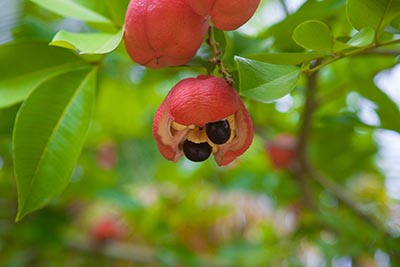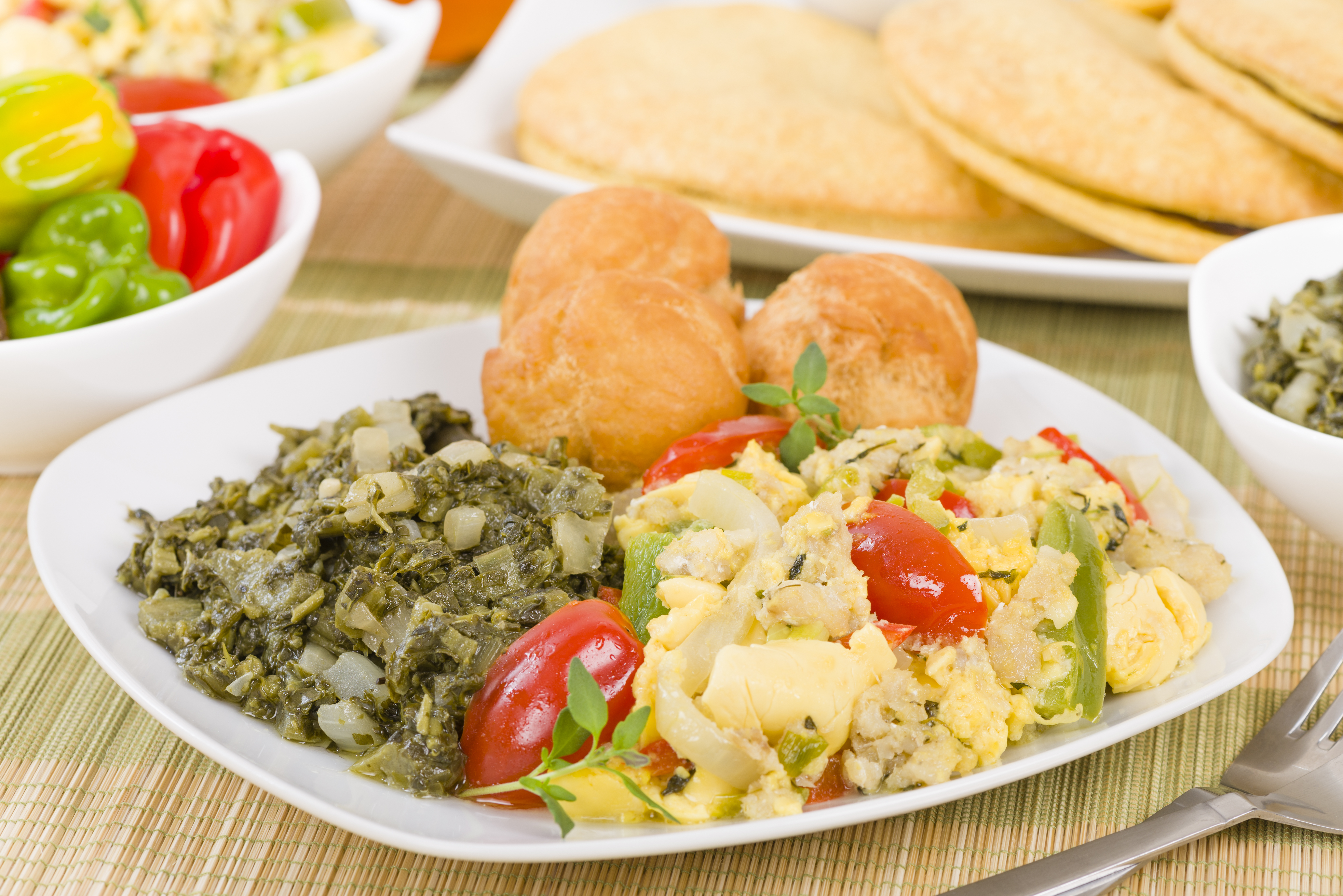
If you’ve ever eaten or heard of Jamaican food, then you’ve probably heard the word “ackee” at some point or other. Most notably, Ackee makes up the non-fish part of the national dish: Ackee and Saltfish. So, for the uninitiated, the question remains...
What is It?
Ackee is a leafy evergreen tree that’s native to tropical West Africa. It grows about 10 meters tall and has complex, compound leaves. The tree produces seedpods that slowly open as they ripen. What we refer to when we’re talking about the food is the soft white/yellow fleshy bit that’s attached to each of the three seeds inside the pod. The seeds, bark, and leaves are only used medicinally and shouldn’t be eaten.
Arrival in Jamaica
Being a West African fruit, ackee isn’t native to Jamaica or the rest of the Caribbean. Ackee was imported to Jamaica during the 18th century by slave traders, and cultivated for food for over 10 years before William Bligh brought it to the attention of Great Britain’s royal gardens. The plant was scientifically named Blighia Sapida in honor of his “discovery.”
How to Eat Ackee

Ackee is commonly eaten sautéed, baked, or fried as a part of savory dishes in Jamaican cuisine for any meal of the day. Most notable among these is the famous Ackee and Saltfish dish, and another very common use is their use in making ackee fritters.
Though it’s quite tasty, ackee hasn’t become popular in much of the rest of the world because of its reputation as a toxic plant. Though ackee that’s treated properly is totally safe to eat, it has had to overcome social stigma and regulatory blockage in potential import countries.
Toxicity Issues
Ackee needs to be left to ripen on the tree until the pod opens up to reveal the ripe ackee. Harvesting unripe ackee is a bad idea because it will still contain hypoglycin A and B, which are otherwise broken down as the fruit ripens. Consuming unripe ackee is dangerous and can lead to hypoglycemia, which is referred to as “Jamaican Vomiting Sickness” in this context.
All ackee that’s imported to the U.S. today is FDA approved and screened to ensure that it’s composed of ripe fruit.
Ackee’s role in Jamaica
Ackee plays a significant role in Jamaica’s economy today, with the industry valued at over 400 million dollars. Though a lot of ackee is eaten locally, the export industry is growing quickly. Last year U.S. demand rose so much that Jamaica wasn’t able to keep up with supply.
Ackee has been an important part of Jamaican culture, cuisine, and history for over 200 years, and it’ll continue to play a vital role in the years to come. Our JCS Ackees in Brine are made of the highest quality and are imported straight from Jamaica and made with the finest ingredients. Check out the ackee available at our store and get a taste of Jamaica in your kitchen!